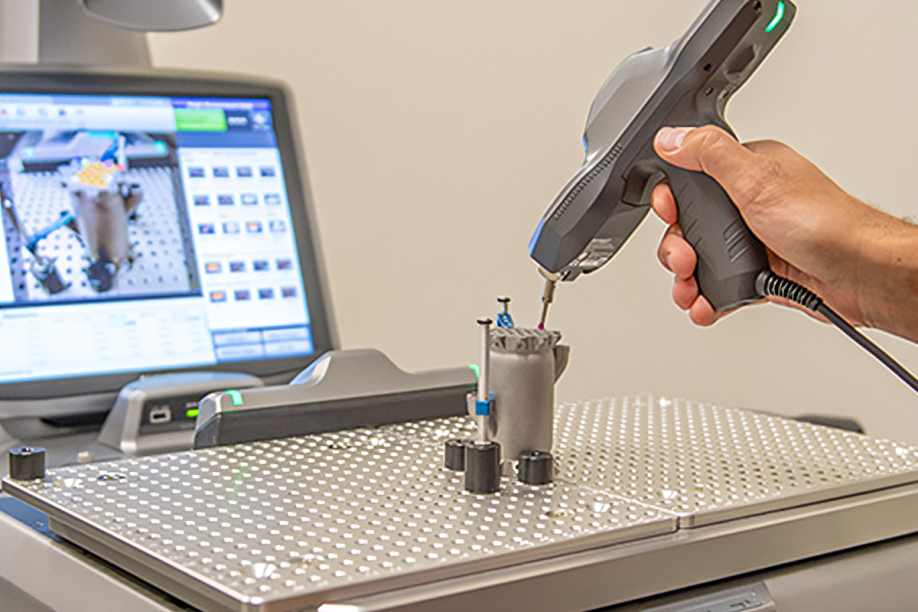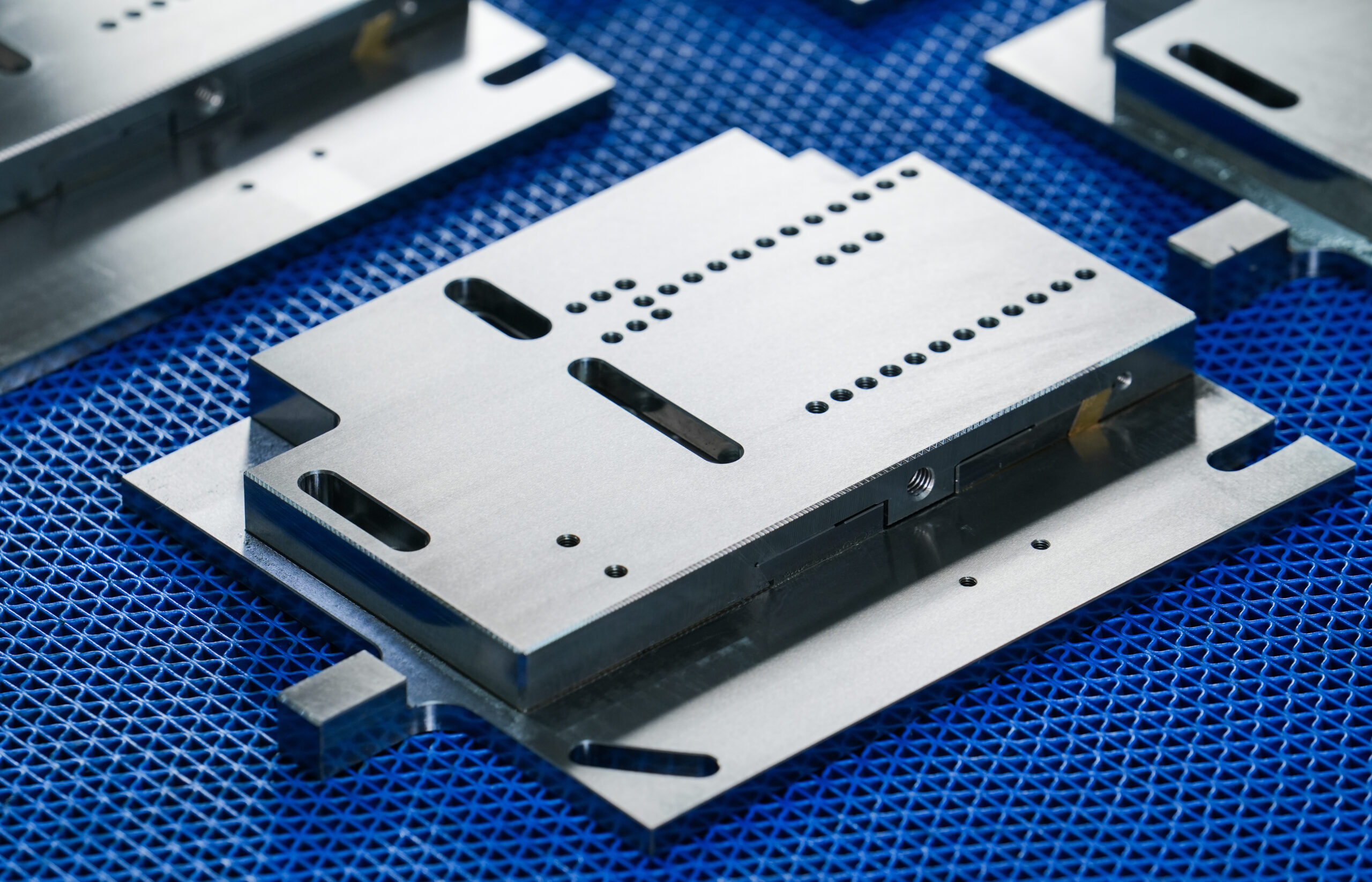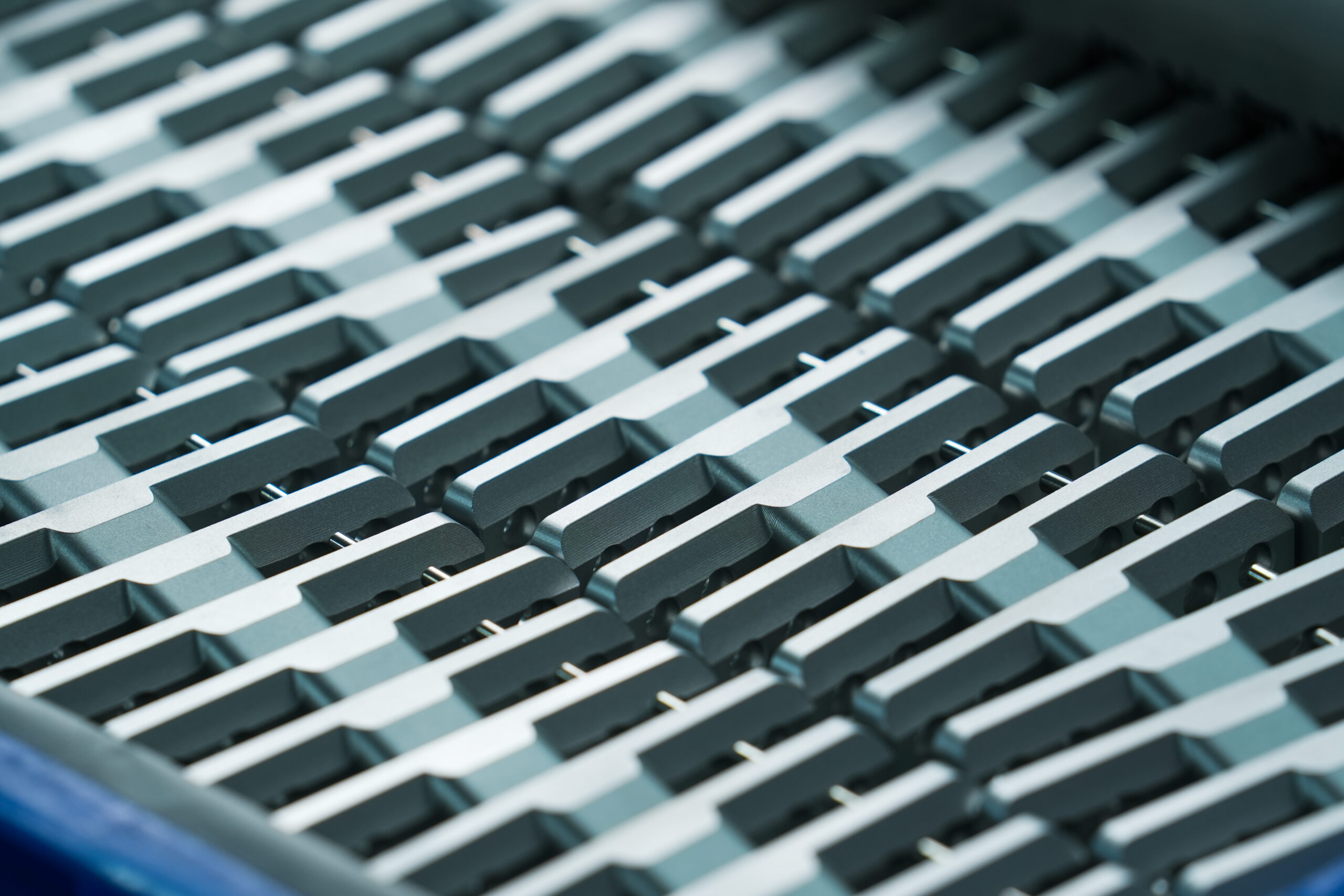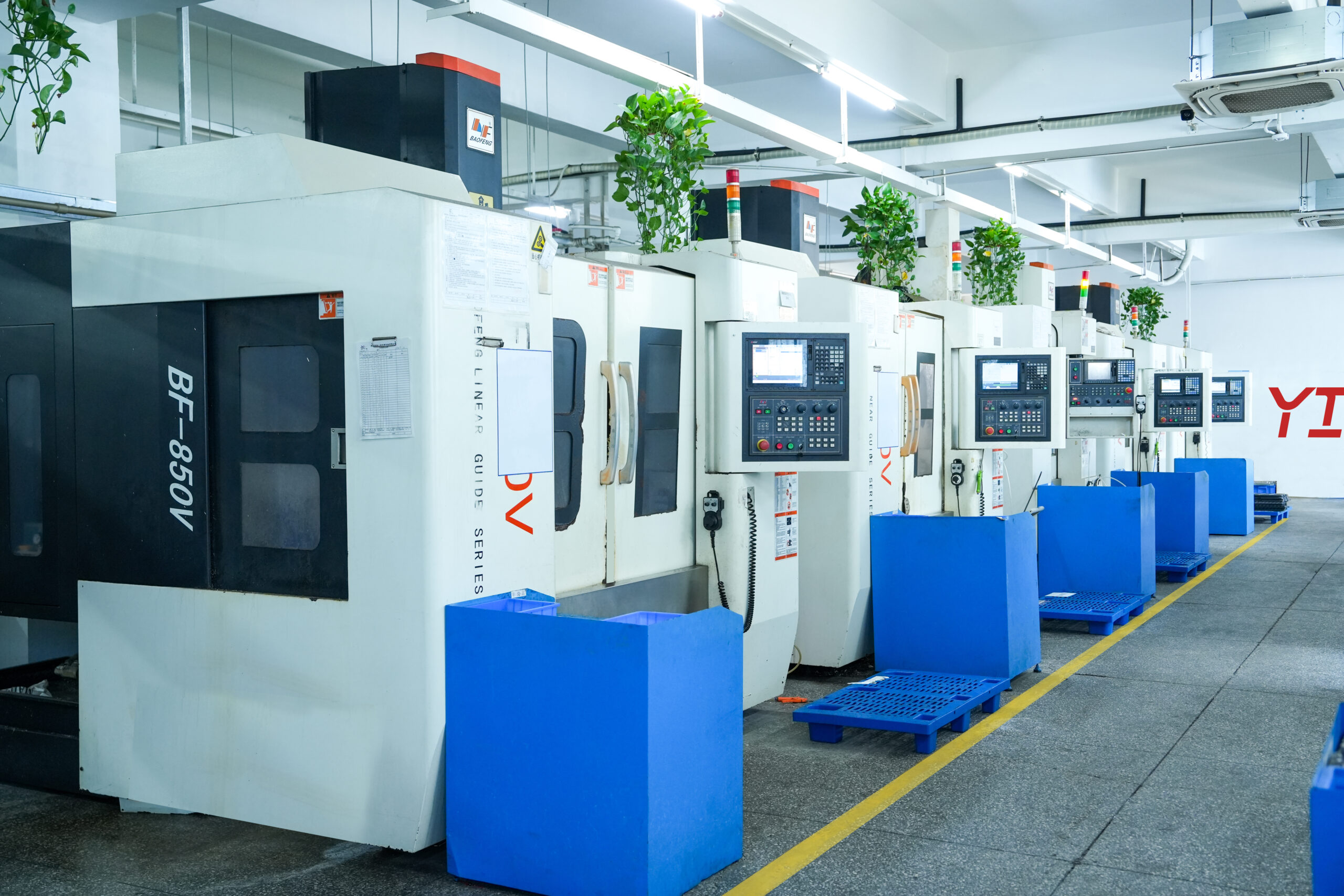Yes, with proper post-processing, DMLS parts have excellent mechanical properties.
Yicen Precision’s Direct Metal Laser Sintering (DMLS) delivers highly accurate, intricate, and robust components for critical industries. Our technology ensures exceptional strength, fine detail, and consistent performance for both functional prototypes and production-ready applications.


Direct Metal Laser Sintering (DMLS) is an advanced additive manufacturing process that employs a focused laser to fuse fine layers of metal powder into precise, fully dense components. Our DMLS capabilities deliver intricate geometries, excellent strength, and tight tolerances in materials including stainless steel, aluminum, titanium, and cobalt chrome, making it ideal for functional prototypes, production parts, and complex internal structures.
| Parameter | Spezifikation |
|---|---|
| Build Size | 10″ x 10″ x 10″ (250 x 250 x 250 mm) |
| Allgemeine Toleranzen | 0.005” +/- for the first inch is typical, plus 0.002” +/- for every inch thereafter |
| Layer Height | .0012” – .0016″ depending on material |
| Surface Roughness | 150-400 µin Ra, depending on build orientation and material used for the build |
| Infill | 100% |
Direct Metal Laser Sintering creates durable, highly detailed metal components by fusing fine powder layers with a powerful laser. Perfect for aerospace, medical, and industrial needs, it enables complex designs, precise tolerances, and reliable prototypes or end-use parts.

Ingenieure und führende Hersteller vertrauen auf Yicen Precision, wenn es um schnelle Iterationen und langlebige, leistungsstarke Teile geht. Ob für Prototypen oder für die Großserienproduktion, unsere umfangreiche Materialauswahl gewährleistet Präzision, Festigkeit und Zuverlässigkeit für jedes CNC-Bearbeitungsprojekt.
3D Printed Aluminum AlSi10Mg
3D Printed Stainless Steel 17-4
3D Printed Stainless Steel 316/L
We offer standard and custom finishing options to ensure your parts meet exact specifications.

Support structures are carefully removed, and the part is media blasted to achieve a consistent, matte surface finish.

For parts requiring tighter tolerances or improved aesthetics, we offer customized post-processing.

Aluminum parts produced via DMLS can be finished to meet unique application needs.

Enhances surface strength and fatigue resistance by bombarding the part with high-velocity media, resulting in a uniform, compressed surface layer.

Mechanical processes that improve surface smoothness and achieve tight dimensional tolerances, ideal for bores, holes, and sealing surfaces

A chemical treatment that smooths rough surfaces by selectively dissolving surface material, improving both aesthetics and performance.

Fills surface porosity using resins or metal alloys to improve strength, sealing ability, and durability in demanding applications.

Removes contaminants and enhances corrosion resistance on stainless steel parts, making them suitable for medical, food-grade, or corrosive environments.
Wir sind darauf spezialisiert, Ihre Ideen mit beispielloser Schnelligkeit und Präzision in hochwertige, funktionale Komponenten umzusetzen. Mit fortschrittlicher Technologie und fachmännischem Können stellen wir Teile her, die selbst die komplexesten Spezifikationen erfüllen.
DMLS fuses metal powder layer-by-layer with a precision laser to produce dense, functional metal parts directly from CAD with no tooling required.
Begin with a CAD model optimized for additive manufacturing (DfAM); choose the appropriate alloy and define critical tolerances and mating surfaces. Save the design as an STL or 3MF file, position it to reduce support needs, and integrate any required support structures. Confirm material specs and printing strategy before moving to slicing.
Slice the model into thin layers and select process parameters such as layer thickness, hatch spacing, laser power, and scan speed. Arrange parts on the build plate for thermal balance and efficient powder use, then load the chosen metal powder into the machine. Set the chamber atmosphere (argon or nitrogen) and verify oxygen levels are within acceptable limits.
A recoater spreads a uniform powder layer across the build platform; layer thickness equals the chosen slice height. Powder characteristics (spherical morphology, ~15–45 µm particle size) and even spreading are critical to avoid defects. Unused powder is collected, sieved, and prepared for reuse under strict quality controls.
A high-powered laser selectively melts the powder according to the sliced paths, creating metallurgical bonds to the previous layer. Scan strategies and energy density are tuned to achieve >99% density while controlling residual stress and microstructure. The machine repeats the spread–scan cycle until the part is complete, with in-process monitoring detecting anomalies when available.
Controlled cooling helps prevent deformation; afterward, the build plate is detached and supports are eliminated using machining, EDM, or grinding techniques. Perform necessary heat treatments (stress relief, HIP), finish critical surfaces by machining or polishing, and apply surface treatments as required.
DMLS offers exceptional design freedom, high-strength parts, and faster turnaround compared to traditional methods, making it ideal for complex, high-performance components.
DMLS enables engineers to create geometries that are impossible or prohibitively expensive with CNC machining or casting. Internal channels, lattice structures, and organic shapes can be produced without tooling constraints. This opens up opportunities for weight reduction of up to 60% in aerospace and automotive components.
Parts made via DMLS can achieve densities of over 99%, matching or even exceeding the mechanical properties of wrought metals. This makes them suitable for load-bearing and mission-critical applications in aerospace, defense, and medical implants.
Since no molds or tooling are required, production can start as soon as the design is finalized. Prototypes can be manufactured in days instead of weeks, accelerating product development cycles and enabling faster time-to-market.
Unlike subtractive methods that can waste up to 90% of the material, DMLS uses powder-bed fusion where unused powder is recovered and reused. This results in minimal waste and better material utilization.
Multiple components can be combined into a single printed part, reducing assembly time, potential failure points, and inventory requirements. For example, an assembly of 12 parts can often be consolidated into 1–2 printed pieces.

Die CNC-Schnellbearbeitung von Prototypen eignet sich perfekt für die Herstellung von technischen oder Produktionsprototypen, die dem Endprodukt in Aussehen und Funktionalität sehr ähnlich sind. Bei Yicen bieten wir Ihnen sofortige Angebote und eine schnelle Lieferung, damit Sie präzise und qualitativ hochwertige CNC-gefertigte Prototypen für Ihren Bedarf erhalten.

Die CNC-Bearbeitung von Kleinserien dient oft als Brücke zwischen Prototyping und Massenproduktion für neue und aufkommende Produktionen. Mit Yicen wird dieser Prozess einfacher, effizienter und kostengünstiger, so dass Sie die Produktion schnell skalieren und gleichzeitig hohe Qualitätsstandards einhalten können.

Die CNC-Produktionsbearbeitung ist die beste Lösung für die effiziente Herstellung von tausend oder mehr Teilen. Yicen nutzt eine vielfältige Auswahl an Werkstoffen sowie Automatisierungs- und Mehrachsenkapazitäten, um Großserien mit engen Toleranzen, überragender Maßgenauigkeit, hoher Zuverlässigkeit und kurzen Durchlaufzeiten zu fertigen.
Erkunden Sie Bearbeitende Dienstleistungen Blog finden Sie Expertenwissen über CNC-Bearbeitung, Branchentrends, Fertigungstipps und Technologie-Updates - damit Sie informiert und inspiriert bleiben und in der Präzisionstechnik einen Schritt voraus sind.
Is DMLS suitable for functional parts?
Yes, with proper post-processing, DMLS parts have excellent mechanical properties.
How detailed can DMLS parts be?
DMLS achieves fine details with layer thicknesses as low as 20-40 microns.
What size parts can DMLS produce?
Build volumes vary by machine but generally accommodate small to medium-sized components.
How fast is the DMLS process?
Printing time depends on size and complexity, ranging from hours to a few days.
Can DMLS reduce production costs?
It can significantly reduce costs for complex, low-volume parts by eliminating tooling.